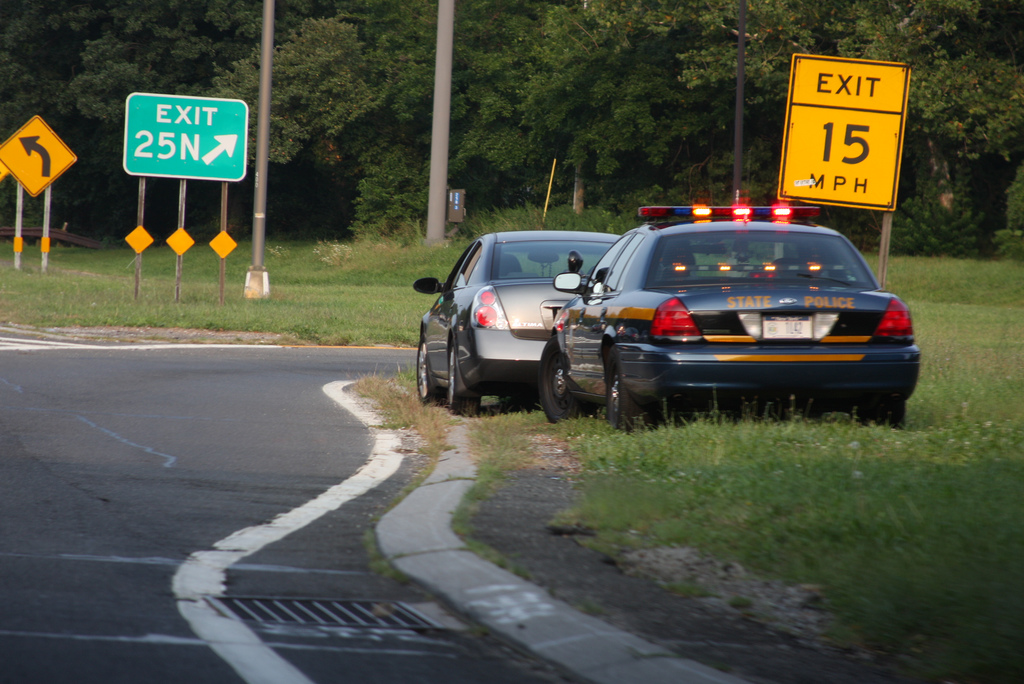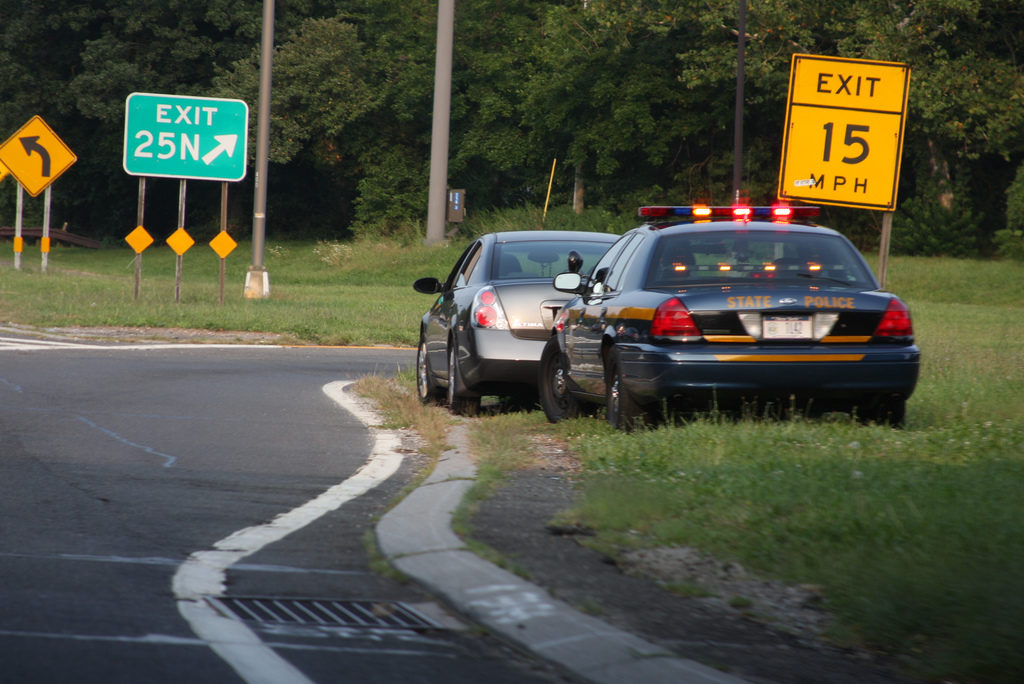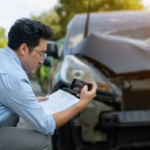Updated July 22, 2018
Related: DUI/DWI, Traffic Tickets, Points for New Jersey Traffic Tickets.
As attorneys who represent drivers accused of traffic violations in New Jersey, we are often asked, “what do I say to the cop after he pulls me over?” Here are a few tips to keep in mind if you get pulled over:
First, don’t panic. Simple advice, but many people start to panic when police show up – they think they are going to jail, they get very nervous, they get very angry, etc. So try to relax. The more panic and nervousness the police observe, the more they will want to investigate you. Once you have relaxed remember to be courteous with the officer – he is just trying to do his job.
Second, you should understand that the police are entitled to certain things when they pull you over. And you should be prepared to give them those things quickly and easily. Have your drivers license, registration, and insurance card ready to give to the police officer. A good tip is to have your registration and insurance card in a holder of some kind in the center console or glove compartment. If you don’t produce these documents, you will get a ticket just for not having your documents.
Third, you should understand that you have NO OBLIGATION TO ANSWER QUESTIONS. Remember, you have the right to remain silent and anything you say can be used against you. That does not mean you are allowed to lie – that is a crime. But when police question you can simply say, “I choose not to answer.” If you actually are guilty of something and you anticipate that you will get a ticket no matter what, that is often the best thing to say. For example, if the officer asks you if you were drinking, it is usually much better to say “I choose not to answer” rather than say “I only had a couple of beers.” At court, the judge cannot use it against you if you say “I choose not to answer” but the judge can use anything else you say against you. Very often people think, “they got me, I might as well admit to everything” when in fact the police have very little evidence and your admissions are needed to make their case. For example, if the officer asks you “do you have any idea how fast you were going?” it means he doesn’t know. Do not tell the officer that you were only going 10 miles over the limit and talk your way into a ticket.
Fourth, if you are being investigated further then you need to protect your rights. Never allow police to search your vehicle. You have the right to be free of unwarranted searches of your car. If they have enough probable cause to believe that there are drugs or weapons in the vehicle, they will search anyway and they do not need your permission (or a warrant). Also, you have no obligation to perform any field sobriety tests; simply say, “I choose not to perform these tests.” It is extremely rare that a driver does so well on a field sobriety test that the office lets the person leave. Almost 100% of the time, the office will take the driver to the station for a breath test or a drug test. You are obligated to submit to a breath test and/or drug test. Refusing those tests will lead to additional charges. At the station, the officer will likely hand you a form with your Miranda rights and ask that you sign it and then answer their questions. DO NOT SIGN THE FORM AND WAIVE YOUR MIRANDA RIGHTS. Again, you have the right to remain silent. Simply say, “I choose not to sign any papers and I will not answer any questions without my attorney.”
Finally, as soon as you are released you should write down as much as you remember about the entire experience. If and when you fight the charges later, you will forget all sorts of things as the months go by. If the officer testifies at court and they are saying something that is wrong, you need to be able to say with certainly and confidence what is wrong and what really happened. Documenting the experience will help you do that. Also, consult with an attorney as soon as possible. Usually, an attorney can be much more effective if retained early rather than at the last minute.
Remember, the police and prosecutors are aggressively prosecuting people who they think are breaking the law. If you have any question or you or a loved one has received a ticket or criminal charge, please do not hesitate to contact us for a 100% free consultation.
Raff & Raff, LLP
Attorneys at Law
30 Church Street
Paterson, NJ 07505
Tel: (973) 742-1917
Fax: (973) 742-2454
Based in Paterson, New Jersey, Raff & Raff, LLP services clients in the communities of Bloomingdale, Clifton, Haledon, Hawthorne, Little Falls, Passaic, Paterson, Pompton Lakes, Prospect Park, Ringwood, Totowa, Wanaque, Wayne, West Milford, Woodland Park, Allendale, Alpine, Bergenfield, Bogota, Carlstadt, Cliffside Park, Closter, Cresskill, Demarest, Dumont, East Rutherford, Edgewater, Elmwood Park, Emerson, Englewood, Fair Lawn, Fort Lee, Franklin Lakes, Garfield, Glenn Rock, Hackensack, Hasbrouck Heights, Haworth, Hillsdale, Ho-Ho-Kus, Leonia, Little Ferry, Lodi, Lyndhurst, Mahwah, Maywood, Midland Park, Montvale, Moonachie, New Milford, North Arlington, Northvale, Norwood, Oakland, Old Tappan, Oradell, Palisades Park, Paramus, Park Ridge, Ramsey, Ridgefield, Ridgewood, River Edge, River Vale, Rochelle Park, Rockleigh, Rutherford, Saddle Brook, Saddle River, Teaneck, Tenafly, Teterboro, Waldwick, Wallington, Westwood, Wood-Ridge, Woodcliff Lake, Wyckoff, Belleville, Bloomfield, Caldwell, Cedar Grove, Orange, Essex Fells, Fairfield, Glen Ridge, Irvington, Livingston, Maplewood, Millburn, Montclair, Newark, North Caldwell, Nutley, Roseland, Verona, Bayonne, Jersey City, Hoboken, Union City, West New York, Guttenberg, Secaucus, Kearney, Harrison, North Bergen, Weehawken, Elizabeth, Linden, Plainsfield, Rahway, Union, Scotch Plains, Clark, Cranford, Hillside, Westfield, Roselle, and surrounding areas.




